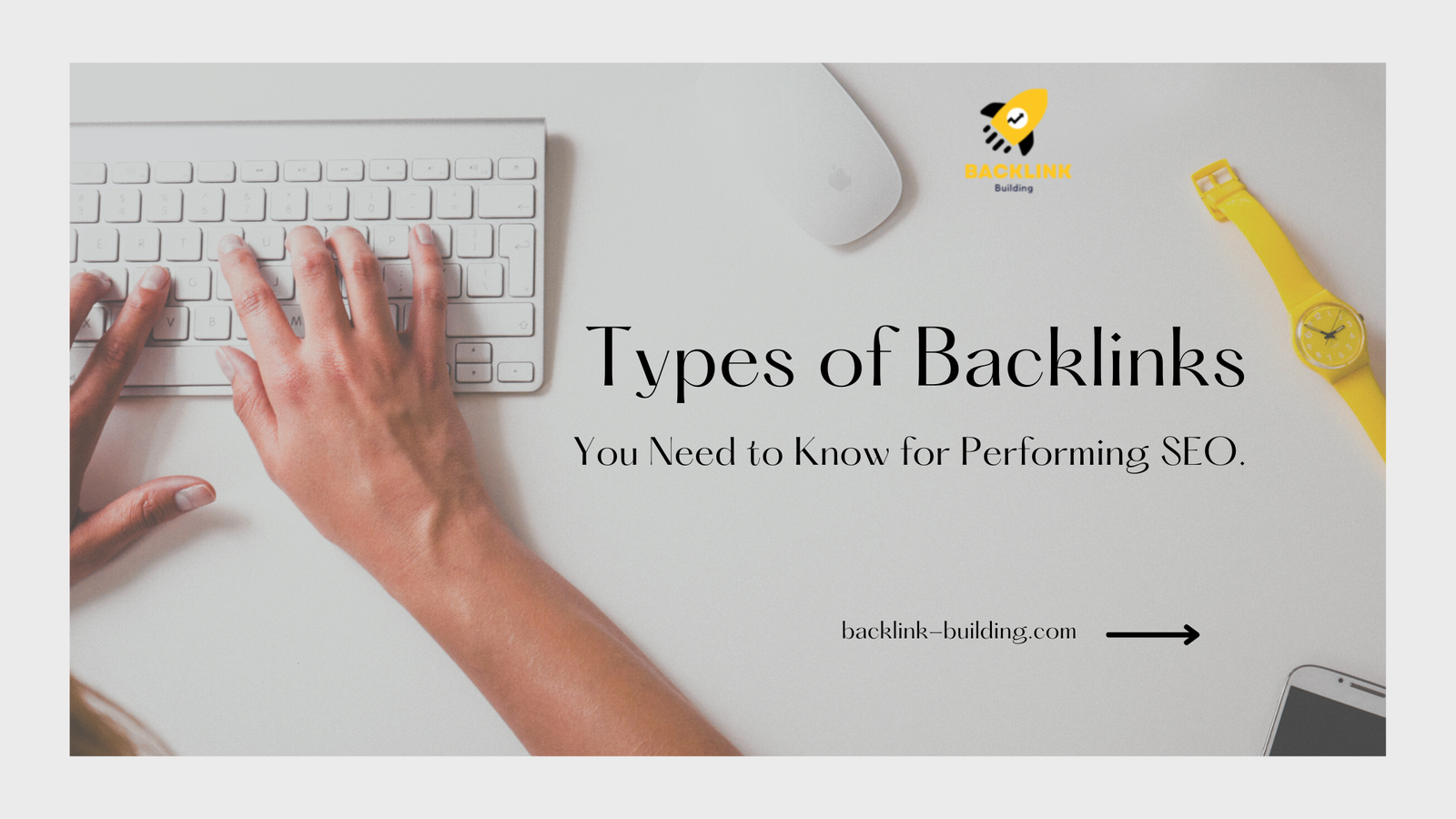
Do you want your website to rank higher in Google searches? Of course, you do! And one of the most critical factors in SEO is backlinks. Backlinks are links from other websites that point back to your website. They indicate to Google that your website is an authority on a specific topic. In this blog post, we will discuss ten types of backlinks that you should know about.
We will also cover why they are essential and how to get them. Finally, we will dispel some common myths about backlinks and answer frequently asked questions.
So, let’s get started by defining backlinks.
What Are Backlinks?

Backlinks, also known as inbound or incoming links, are links from external websites that lead back to your website. Backlinks play a significant role in search engine optimization because they signal to search engines that your website is a credible and authoritative source on a specific topic.
Why Are Backlinks Important?
- Backlinks are a vote of confidence from other websites. When other reputable sites link back to your website, it tells search engines that your content is valuable and worth ranking higher in search results. Here are five reasons for making backlinks important for SEO:
- Backlinks drive referral traffic to your website. When a reader clicks on a link from another site, they are directed to your website, potentially increasing your website traffic and potential customers.
- Backlinks improve the overall domain authority of your website. Search engines often use domain authority, determined in part by the number and quality of backlinks, as a ranking factor for search results.
- Backlinks can lead to new partnerships and relationships within your industry or niche. Building backlinks often involves outreach and communication with other websites or businesses, leading to potential collaborations or partnerships.
- Backlinks enhance the discoverability and visibility of your brand. Backlinks help search engines quickly crawl and index your website, improving the likelihood that searchers will find your brand in search results.
Types Of Backlinks You Should Know.
Editorial Backlinks
To gain editorial backlinks, create valuable and newsworthy content that other websites want to link to. These links are naturally gained through public relations efforts or editorial coverage on reputable websites within your industry.
They carry high weight because search engines see editorial backlinks as a vote of confidence from other reputable websites in your industry.
Guest Blog Backlinks
Reach out to website owners in your industry and offer to write a guest blog post for their site, including a link back to your website.
This helps build relationships within your industry while gaining valuable backlinks from the hosting website. Ensure the website is reputable and has a high domain authority before agreeing to a guest blogging opportunity.
Resource Page Backlinks
Look for websites in your industry with resource pages or directories and ask if they would add a link to your website as a valuable resource for their readers.
This can help drive referral traffic to your website while also gaining a valuable backlink from the hosting website.
Broken Link Backlinks
Some websites may have broken links on their pages, leading to a 404 error when clicked on by readers. Use a tool like Ahrefs to find broken links on external websites within your industry and reach out, offering your website a replacement link for the broken one.
This is a win-win situation since you are providing value to the hosting website by fixing its broken link while also gaining a valuable backlink.
Image Backlinks
Images on external websites often include a source or credit linked to the original image creator’s website. Enhance the discoverability of your images by including descriptive titles and tags that make it easier for external websites to find and link back to your website when using your images.
Testimonial Backlinks
Offer a testimonial for a product or service on an external website, including a link to your website. Creating these types of backlinks often requires a genuine customer experience with a product or service, making them highly credible to search engines and readers.
This helps build credibility for both companies and can lead to valuable referral traffic. And, It will also improve the overall authority of both websites.
Brand Mention Backlinks
Monitor online mentions of your brand or website without a direct link to your site. Reach out and ask if they would be willing to add a link, enhancing your website’s discoverability and search rankings.
Several tools are available to help you monitor online mentions of your brand or website, and most offer some integration with backlink tracking tools. Some of these tools are free, while others require a paid subscription.
Forum And Q&A Backlinks
Participate in industry forums or Q&A websites like Quora and answer questions, including a link to your website for further resources or information. This helps build credibility as an industry expert while gaining valuable backlinks from the hosting website.
Infographic Backlinks
Create valuable and shareable infographics related to your industry, including a link back to your website as the source. Using your infographic can drive referral and social media traffic while gaining valuable backlinks from external websites.
Directory Backlinks
Submit your website to reputable online directories within your industry, including a link to your site. This can improve discoverability and drive referral traffic. But, Remember to only submit to reputable and well-maintained directories, as low-quality directories can harm your search rankings.
You should focus on these top 10 types of backlinks you should know for successful search engine optimization.
What Types Of Backlinks Should You Avoid?
Here are Four types of backlinks you should avoid:
- Paid links or link exchanges with unrelated websites
- Low-quality directory submissions
- Links from spammy or low-quality websites
- Excessive exact-match anchor text links
These backlinks can harm your search rankings and website credibility, so focusing only on building high-quality backlinks from reputable sources is essential.
FAQs
Q. How Do I Know If A Website Is Reputable For A Backlink?
One way to gauge the credibility of a website is to check its Domain Authority or DA score. This score, ranging from 1-100, is a prediction of a website’s rankability in search engine results. A higher DA score indicates a more reputable and credible website.
Q. How Do I Track My Backlinks?
Various tools and software options, such as Ahrefs or SEMrush, can help track your website’s backlinks. These tools can show you the websites linking to yours, the anchor text used, and the quality of those links.
Q. Can I Build Too Many Backlinks?
It is possible to have too many low-quality backlinks, which can harm your search rankings and website credibility. It is better to focus on building a smaller number of high-quality backlinks from reputable websites rather than a large quantity of low-quality links.
Final Thoughts
Now that you know the top 10 types of backlinks to focus on and the ones to avoid, it’s time to start building your backlink profile. Remember to always prioritize quality over quantity and focus on building relationships with other reputable websites in your industry.
If you have any questions related to Backlink types, then feel free to leave your question in the comment section. We will be happy to answer you.
Thanks for reading 🙂


